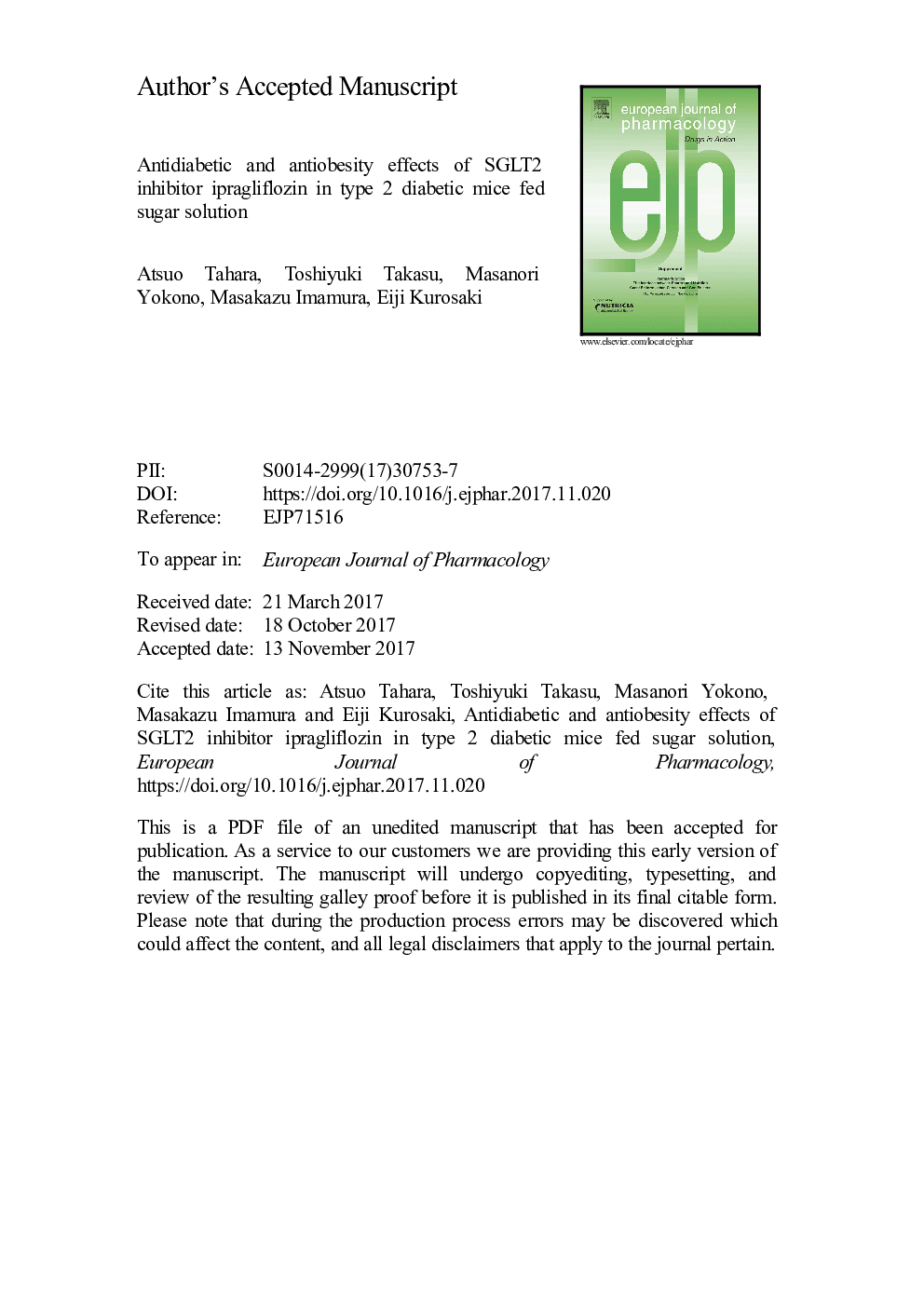| Article ID | Journal | Published Year | Pages | File Type |
|---|---|---|---|---|
| 8529933 | European Journal of Pharmacology | 2018 | 27 Pages |
Abstract
Obesity due to excessive calorie intake is a known aggravating factor contributing to the development and progression of type 2 diabetes. Recently, excessive intake of sugar-sweetened beverages has presented challenges in stemming the tide of obesity. Here, we investigated the possible effects of sugar solution intake on the antidiabetic effects of sodium-glucose cotransporter 2 (SGLT2) inhibitor ipragliflozin in type 2 diabetic mice that were fed ordinary drinking water, water + glucose solution, or water + sucrose solution. Under all feeding conditions, all mice exhibited type 2 diabetic symptoms, including hyperglycemia, hyperinsulinemia, and obesity; ipragliflozin subsequently improved these symptoms through increases in urinary glucose excretion. Effective dose of and response to ipragliflozin for diabetes improvement did not significantly differ by feeding condition. Further, under all feeding conditions, ipragliflozin administration resulted in significantly increased intake of both water and sugar solutions in association with increased urine volume resulting from increased urinary glucose excretion. In sugar solution-fed diabetic mice, ipragliflozin administration tended to slightly increase the proportion of sugar solution intake in total drinking volume, although not significantly so. In addition, ipragliflozin significantly decreased calorie balance, as calculated using calorie intake from food and sugar solution and calorie excretion via urinary glucose excretion. Our observation that the antidiabetic and antiobesity effects of the SGLT2 inhibitor ipragliflozin were not greatly affected by sugar solution intake in type 2 diabetic mice suggests that, in a clinical setting, ipragliflozin will remain an effective treatment for type 2 diabetic patients with excessive intake of carbohydrates.
Related Topics
Life Sciences
Neuroscience
Cellular and Molecular Neuroscience
Authors
Atsuo Tahara, Toshiyuki Takasu, Masanori Yokono, Masakazu Imamura, Eiji Kurosaki,
